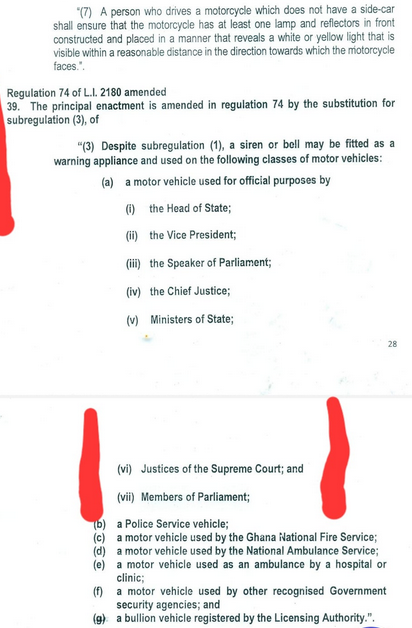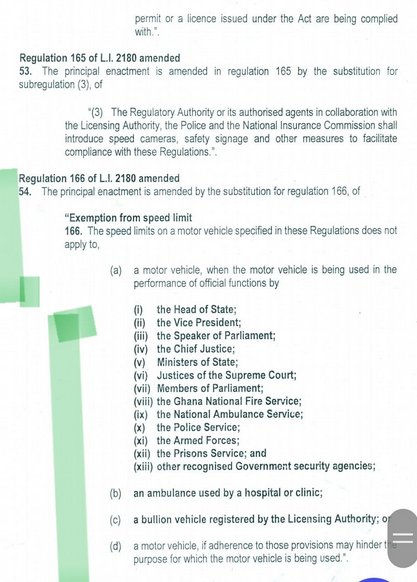MPs, ministers, judges to use sirens and drive without speed limits - Parliament's new L.I.
)
The proposed amendment to Regulation 74 of LI 2180 will allow sirens or bells to be installed as warning devices on specific vehicle classes, including those owned by justices of the Supreme Court, Members of Parliament, and Ministers of State. This adjustment means that these individuals can utilise sirens to navigate through traffic more efficiently. The use of sirens, traditionally restricted to emergency services like ambulances, fire engines, and police vehicles, will now extend to high-ranking public officials, potentially altering the dynamics of urban traffic management.
Furthermore, the modification to Regulation 166 of LI 2180 suggests that speed limit rules will no longer be applicable to MPs and Ministers of State, enabling them to travel more swiftly while performing their duties. This exemption aims to facilitate the rapid movement of these officials, especially in times of national emergencies or when attending to urgent state matters. Critics, however, argue that this could lead to potential misuse and endanger road safety.

In December 2020, Parliament enacted the Road Traffic (Amendment) Bill 2020, which enforces stricter penalties for road traffic violations that result in the death of an unborn child. This legislation introduced significant changes, including a minimum custodial sentence for offenders and a more rigorous enforcement mechanism to ensure compliance with road safety standards. It underscores the government's commitment to protecting vulnerable lives and enhancing road safety.
This legislation is notable for being the first private member’s Bill, proposed by MPs, to receive parliamentary approval. The successful passage of this Bill marks a milestone in legislative history, demonstrating the increasing influence and initiative of private members in shaping national policy.

The proposed amendments to the Road Traffic Regulations represent a significant change, with potential impacts on both road safety and the mobility of public officials. Proponents of the amendments argue that these changes are necessary to improve the efficiency and effectiveness of public officials, particularly in scenarios requiring urgent attention. However, road safety advocates have raised concerns about the broader implications for traffic management and public safety.
As Parliament debates these proposed changes, the balance between ensuring efficient governance and maintaining road safety remains a contentious issue. The outcome of this legislative process will likely set a precedent for future discussions on the privileges and responsibilities of public officials on the road.
)
)
)
)
)
)
)
)
)
)
)
)
)
)
)
)